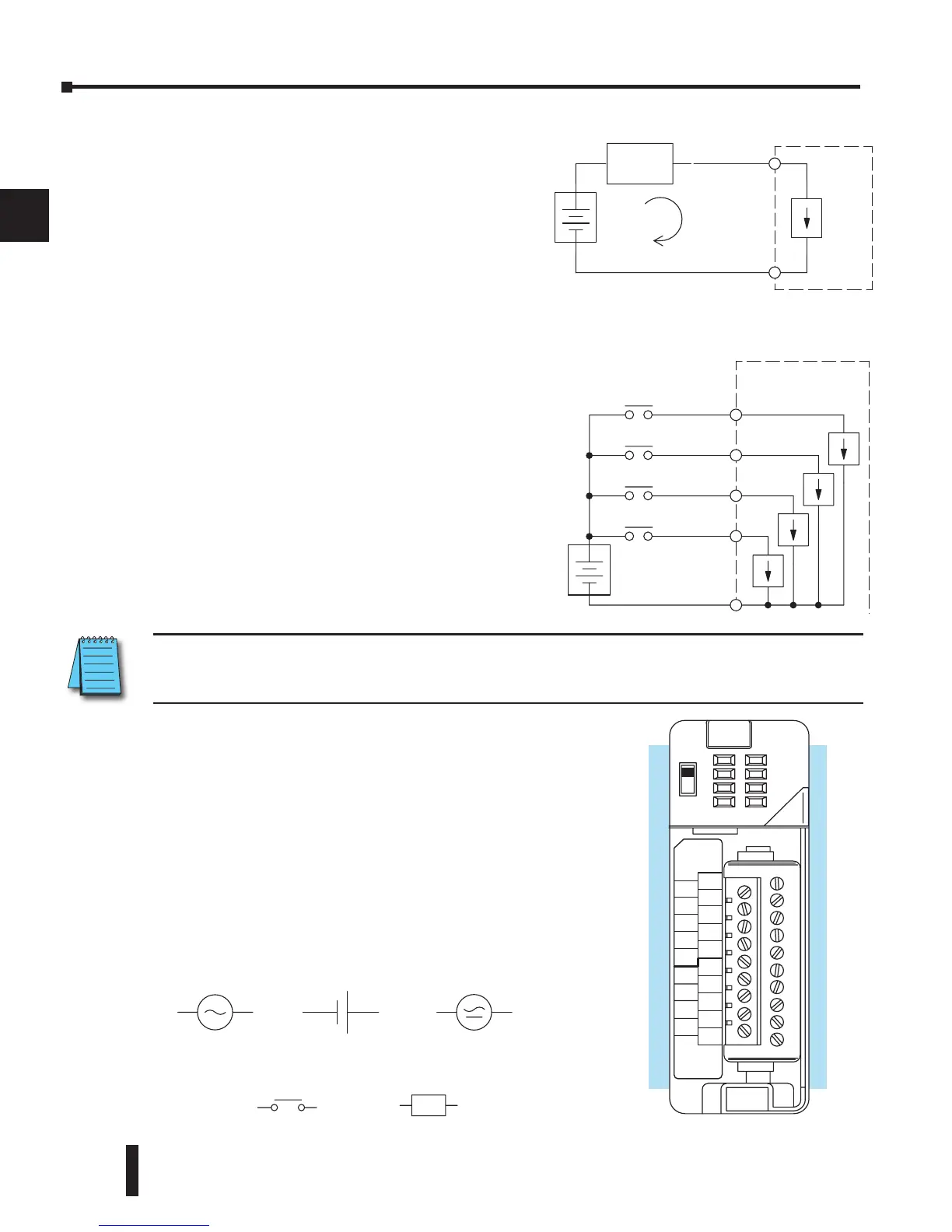DL205 User Manual, 4th Edition, Rev. D
2-18
Chapter 2: Installation, Wiring and Specifications
1
2
3
4
5
6
7
8
9
10
11
12
13
14
A
B
C
D
I/O “Common” Terminal Concepts
In order for a PLC I/O circuit to operate,
current must enter at one terminal and exit at
another. Therefore, at least two terminals are
associated with every I/O point. In the figure
to the right, the Input or Output terminal is
the main path for the current. One additional
terminal must provide the return path to the
power supply.
If there was unlimited space and budget for
I/O terminals, every I/O point could have two
dedicated terminals as the figure above shows.
However, providing this level of flexibility
is not practical or even necessary for most
applications. So, most Input or Output points
on PLCs are in groups which share the return
path (called commons). The figure to the right
shows a group (or bank) of four input points
which share a common return path. In this
way, the four inputs require only five terminals
instead of eight.
NOTE: In the circuit above, the current in the common path is 4 times any channel’s input current when all
inputs are energized. This is especially important in output circuits, where heavier gauge wire is sometimes
necessary on commons.
Most DL205 input and output modules group their I/O
points into banks that share a common return path.
The best indication of I/O common grouping is on the
wiring label, such as the one shown to the right. There
are two circuit banks with eight input points in each. The
common terminal for each is labeled “CA” and “CB”,
respectively.
In the wiring label example, the positive terminal of a DC
supply connects to the common terminals. Some symbols
you will see on the wiring labels, and their meanings are:
L
